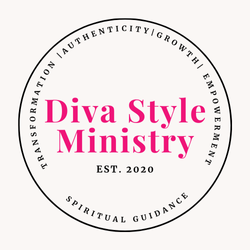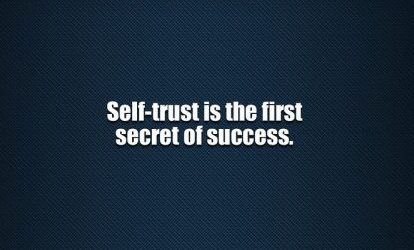If you have difficulty trusting yourself, the problem may be that you are too dependent on others.
When this happens, the tendency occurs to let the situation grow, and you become more and more dependent on other people instead of leaning into your own strengths and abilities. It’s a slippery slope – once you get into that condition, it can be really hard to get out.
That becomes even more of a problem when you are called upon to handle challenging situations alone.
Have you ever let someone else take over a part of your job? While you may feel temporary relief when this happens, you could be setting yourself up for future failure. The reason why the takeover happened? You didn’t trust that you could do the task or conquer the challenge yourself. That doesn’t build your strength or your capabilities.
The above scenario can start when you are asked to do something outside your comfort zone. Perhaps your boss wants to test how you will handle a new and challenging situation. He or she gives you an assignment, knowing you have never dealt with it previously.
It’s natural in these situations to ask others for help when you find yourself in unfamiliar territory. There is nothing wrong with asking for assistance. However, if you simply let others solve the problems or handle the challenges for you, you deny yourself an opportunity for growth.
You will find it harder to develop trust in yourself to handle new situations, because you don’t have the track record of attempting new tasks successfully. Eventually you can convince yourself that you just don’t have the skill set, and that will show up again and again as your progress.
Your manager will see that you, in essence, passed the assignment onto someone else, whether directly or indirectly. Unfortunately, your manager won’t look kindly on this development – perhaps they assigned you the task to help build your confidence, seeking to prove an ability they already saw in you.
When presented with something that you haven’t experienced before, try to establish and maintain a positive attitude. Always be willing to try even if you make mistakes. Mistakes are the tools we use to learn new things.
When you do make those mistakes, consider asking what you did wrong, and what you could do to correct the situation. Over time, those mistakes will get less and less, and you will begin to trust that you can handle the situations.
A subtle consequence will result from trying something new. You will prove to yourself that you can handle new tasks and develop new skills. That is enlightening and is a big factor in boosting your level of self-trust.
Every skill you are now good at and find easy, you probably struggled with at the start. If you keep this in mind, you will find it easier to trust that you can handle anything that comes your way.
You won’t feel the need to rely on others as much. You still should ask questions when unsure about something – that is another part of how you learn. Some people may give you a hard time because it can be inconvenient to answer questions, but you will find most people want to help you succeed. It helps them when you get up to speed with new skills.
No one is immune from feeling a bit of anxiety and lack of self-trust when trying to accomplish something new – we’ve all felt it, even if we don’t want to admit it! When you continue to rely on others and not build your own self-trust and self-confidence, you’re locking yourself into a negative pattern that will not serve you well.





